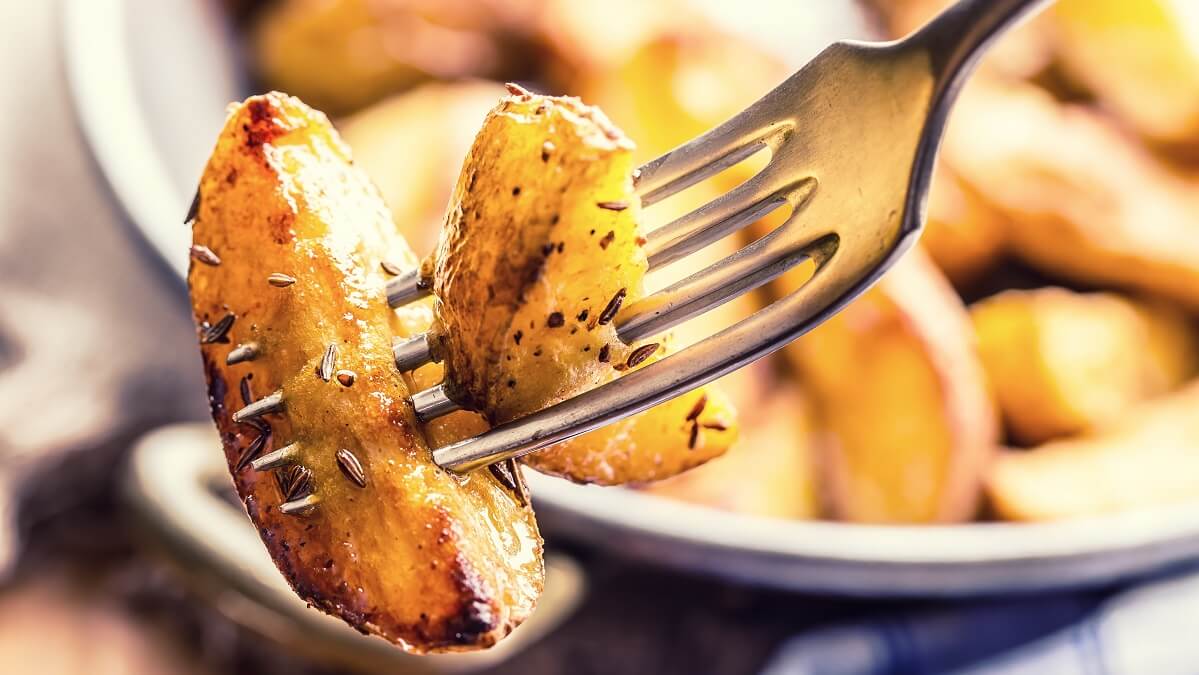If you’ve been avoiding potatoes for health reasons, there may be some good news at hand. A new study from Louisiana suggests a potato-based diet could be as healthy as a bean-based one – for some.
The study, published by the National Library of Medicine, was an eight-week randomised trial involving participants aged 18 to 60. All were overweight, obese or insulin resistant.
They were divided into two groups and given one of two diets. One comprised beans, peas and meat or fish; the other was made up of white potatoes with meat or fish. In other words, the beans and peas of one group were substituted with white potatoes in the other.
Weighty evidence
The results are probably surprising to most. The study’s abstract concludes with this sentence: “Potato and bean diets low in energy density were equally effective in reducing insulin resistance and promoting weight loss in individuals with impaired blood glucose control.”
Dr Candida Rebello, study co-author and assistant professor at Pennington Biomedical, said the results challenged some commonly held ideas about potatoes. “We demonstrated that contrary to common belief, potatoes do not negatively impact blood glucose levels,” she said. “In fact, the individuals who participated in our study lost weight.”
Dr Rebello provided a possible reason for the disparity between belief and the evidence.
“People tend to eat the same weight of food regardless of calorie content in order to feel full,” she said. “By eating foods with a heavier weight that are low in calories, you can easily reduce the number of calories you consume.
“The key aspect of our study is that we did not reduce the portion size of meals but lowered their caloric content by including potatoes.”
But before you go potato mad …
In health research stories, there’s almost always a ‘but’. Sadly, that is also the case this time around. The key lies in how the potatoes are prepared for eating.
A relative of mine, when questioned as to whether he was getting enough fruit in his diet, had an instant response. “Of course. I have a bowl of Fruit Loops every morning.” He was, of course, joking. The actual fruit content of Fruit Loops is roughly … zero. Although according to Kellogg’s, they do contain “natural flavours (orange, lemon, lime)”.
With potatoes, one can almost go to that extreme. The actual potato content of a single thin French fry is not much. And a heavily battered potato cake/scallop can often comprise more batter than potato.
In the case of the new study, it was the way they were cooked that provided the advantage. “To increase the dietary fibre component of the potatoes, they were boiled with the skin intact.” They were then refrigerated for between 12 and 24 hours.
You will have noticed that there is not a single mention of oil or batter in this method. And therein lies the key. Potatoes can indeed be a significant component of a healthy diet – even a diet that results in weight loss.
But if you include straw-cut French fries cooked in oil as one of your daily vegetable servings, that’s a different story. You might be able to fool yourself, but you won’t be fooling your body.
Have you excluded potatoes from your diet for health reasons? Will the results of this study change your mind? Let us know via the comments section below.


Wow, when I was growing up, the humble potato was the staple food source.
Baked Potato, Chips, Straight & Crinkle Cut, Boiled Potatoes, Mashed Potatoes, and probably a few others. I don’t think that it had any adverse effect on health, but now there are a large number of Potato Types so there may now bee some types that are not as healthy as others, but remains to be proven.